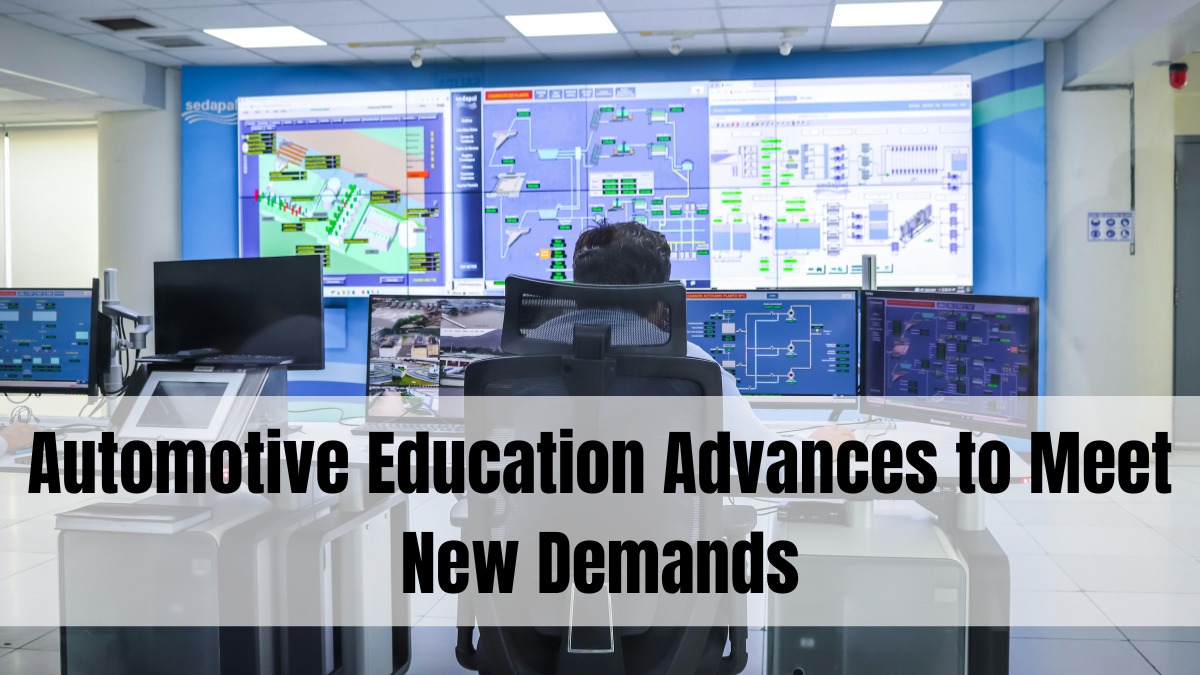The world of automobiles is transforming at lightning speed — electric vehicles (EVs), hybrid engines, advanced diagnostics, and connected car technologies are reshaping everything. But while the vehicles change, one thing becomes crucial: the need for automotive education advancements that align with these cutting-edge trends.
Today, vocational institutes, community colleges, and technical universities are stepping up. They are no longer offering outdated curriculums that cater only to internal combustion engines. Instead, they’re integrating real-world technologies, equipping students with skills that modern-day garages, dealerships, and manufacturers truly demand.

Shift Toward EV and Hybrid-Focused Curriculum
One of the biggest shifts in automotive education advancements is the rapid inclusion of EV and hybrid-specific training. Schools are redesigning their curriculum to ensure students:
-
Understand electric propulsion systems
-
Handle high-voltage components safely
-
Perform diagnostics using EV-compatible tools
-
Learn about regenerative braking, battery management, and charging infrastructure
Many institutions now offer dedicated modules on electric mobility and provide hands-on experience with hybrid and electric vehicles. Manufacturers like Tesla and Toyota are partnering with training centers to ensure graduates meet real-world job expectations.
Integration of Advanced Diagnostics and Software Tools
Modern vehicles rely on sophisticated software, sensors, and onboard diagnostics (OBD-II). Traditional mechanical repair knowledge alone is no longer enough.
Educational institutions now teach students how to:
-
Use OBD-II scanners and oscilloscope tools
-
Perform data analysis for error codes
-
Understand ECU (Engine Control Unit) behavior
-
Troubleshoot CAN bus communication systems
This level of training reflects the industry’s growing need for technicians who can think like engineers and act like coders.
Virtual Labs, Simulators, and Remote Learning
The post-pandemic world has accelerated the use of remote learning in the vocational sector. Virtual diagnostic labs, augmented reality (AR) engines, and 3D car modeling are no longer just concepts — they’re being widely used for immersive learning.
Key trends in this area include:
-
Online modules with real-time instructor interaction
-
Simulators for engine disassembly and fault diagnosis
-
Self-paced learning for working professionals
-
Certification courses accessible from any location
These advancements democratize access to automotive education and open doors for students who can’t attend physical institutions.
Industry Partnerships and Certification Alignment
Many automotive education advancements are being driven by direct collaboration with the industry. For example:
-
Schools align their programs with ASE (Automotive Service Excellence) standards.
-
Employers offer internship pipelines and co-op programs.
-
Training centers update their teaching methods based on emerging vehicle technologies and technician shortages.
This bridge between education and employment ensures students are job-ready the moment they graduate.
Emphasis on Sustainability and Clean Technologies
Sustainability is now a core pillar of automotive engineering. Educational institutions are integrating green technologies into their syllabus by:
-
Teaching low-emission system designs
-
Exploring hydrogen fuel cells and solar vehicles
-
Promoting environmentally conscious repair practices
By doing so, they’re not only training students in future-ready tech but also encouraging responsible automotive innovation.
A Global Push for Vocational Excellence
Across the UK, US, Canada, Australia, and India, governments are investing heavily in vocational upskilling programs. From government grants to infrastructure upgrades, support is being channeled to ensure every student has access to modern automotive education advancements.
Some governments also provide:
-
Subsidies for toolkits and safety equipment
-
Funding for teacher retraining in EV tech
-
National-level competitions to showcase student innovation
FAQs
What are the latest advancements in automotive education?
Recent advancements include EV and hybrid vehicle training, online simulations, industry-aligned curriculum, and advanced diagnostics using modern tools.
How are schools preparing students for electric vehicles?
Schools are teaching high-voltage safety, battery diagnostics, and hands-on practice with hybrid and EV systems through dedicated modules and lab sessions.
Can I pursue automotive training online?
Yes, many institutions now offer remote learning options with virtual labs, ASE exam prep, and flexible self-paced programs for automotive careers.
Why is diagnostic training important in modern auto education?
Because modern vehicles are software-driven, diagnostics training helps students interpret system codes, identify faults, and repair cars more efficiently.
Are automotive education programs aligned with job market needs?
Yes, most programs are designed with direct input from the automotive industry and align with certifications like ASE to ensure job readiness.
Click here to know more.
